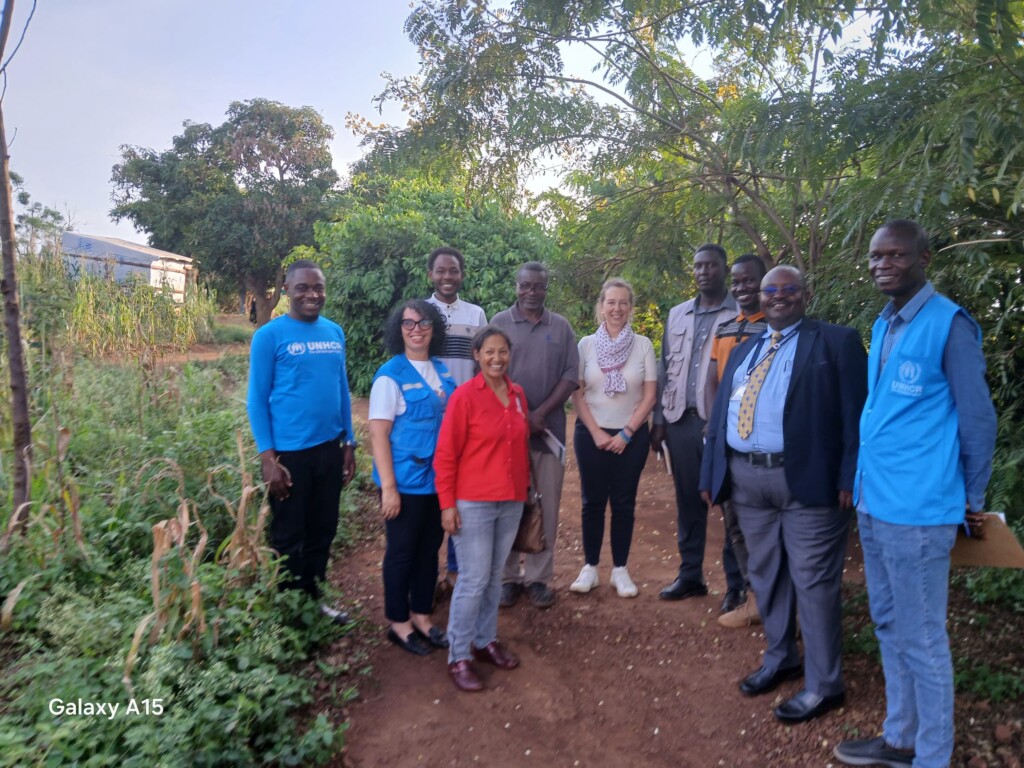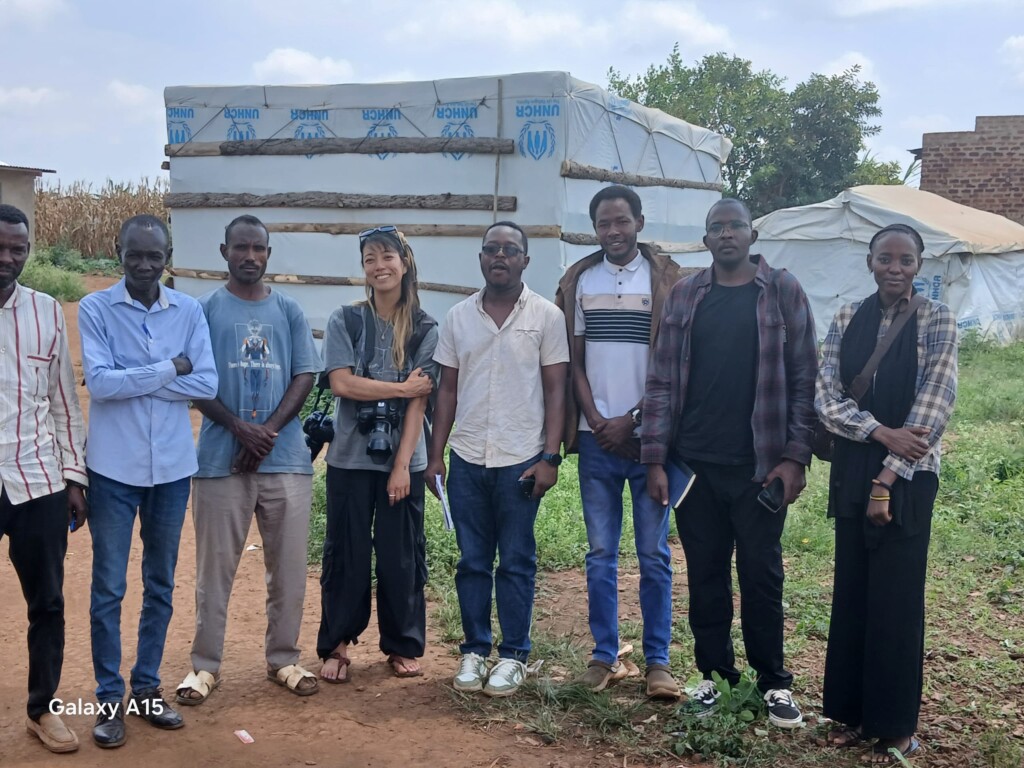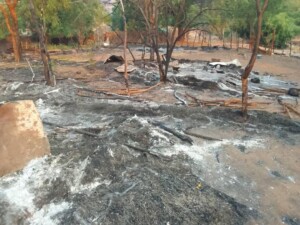Calls to evacuate Sudanese refugees from Uganda

A UNHCR official with Sudanese refugee representatives during a field visit to Kiryandongo camp in northern Uganda
A UNHCR envoy from Geneva has conducted a field visit to Kiryandongo camp in northern Uganda on Monday and Tuesday to assess the effects of violent attacks on Sudanese refugees by Nuer groups. The attacks resulted in the death of one refugee, the injury of dozens, widespread destruction of property, and the displacement of entire families. The Sudanese Refugee Community Leadership Office called on the UNHCR to resettle refugees in safer countries, in light of what it described as “systematic attacks and the complete collapse of protection conditions,” asserting that their targeting by other refugees “deepened the sense of betrayal and distrust.”
During the two-day visit, the UN envoy met with Sudanese and South Sudanese families inside the camp, accompanied by a delegation from the UNHCR Protection Office, a Ugandan government representative, and the head of the camp’s refugee affairs office (Camp Commander). She reviewed detailed reports on the humanitarian situation, including a previous letter from High Commissioner Filippo Grandi dated March 22, 2025, and a photo album illustrating the extent of injuries and losses.
She also visited the reception centre for new refugees to assess the conditions of arrivals from Sudan, amid growing concerns about the continued deterioration of security within the settlement.
Wounded and widespread destruction
According to documents provided by the leadership office, at least 64 Sudanese refugees were subjected to physical attacks, including one fatality and three cases in intensive care, in addition to 30 serious injuries and 30 minor injuries. The attacks included a mass assault by approximately 400 uniformed individuals on Cluster B, leading to a complete breakdown of the security situation.
From sporadic violence to an organized attack
The document indicated that the attacks began as sporadic looting before escalating into coordinated assaults involving sharp objects such as machetes and spears. The report emphasized that the lack of response from the authorities deepened the state of fear and terror, particularly among women and children.
Psychological and living deterioration
Field reports documented significant psychological and economic impacts, including post-traumatic stress disorder, a sense of vulnerability and constant danger, as well as looting of property, medical costs, and destroyed income-generating projects. This has forced hundreds of families to flee the camp or consider returning to Sudan despite the risks there.
Social rift and lack of protection
The leadership office confirmed that the recent attacks have created a deep rift between the Sudanese and Nuer communities within the settlement, which has been reflected in Sudanese students who have begun to skip school due to harassment. Meanwhile, homes in some clusters, particularly B and L, have been burned.
Urgent demands
The office called for the resettlement of Sudanese refugees to safe countries as a humanitarian protection solution, the provision of adequate shelter following the collapse of existing tents, urgent support including food, medical treatment, and education, and the reinstatement of Sudanese families to the World Food Programme’s food assistance list after their recent exclusion.
He also stressed the need to hold perpetrators accountable, compensate victims, and ensure that attacks are not repeated, with a particular focus on vulnerable groups such as women, children, and the elderly.
Comprehensive documentation
The visit documents included photos of the victims, the injured, and destroyed homes, in addition to a detailed table showing the distribution of casualties by cluster:
Cluster L: 30 hits
Cluster B: 19 cases + 1 death
Cluster G: 9 injuries
Cluster C: 6 injuries












 and then
and then